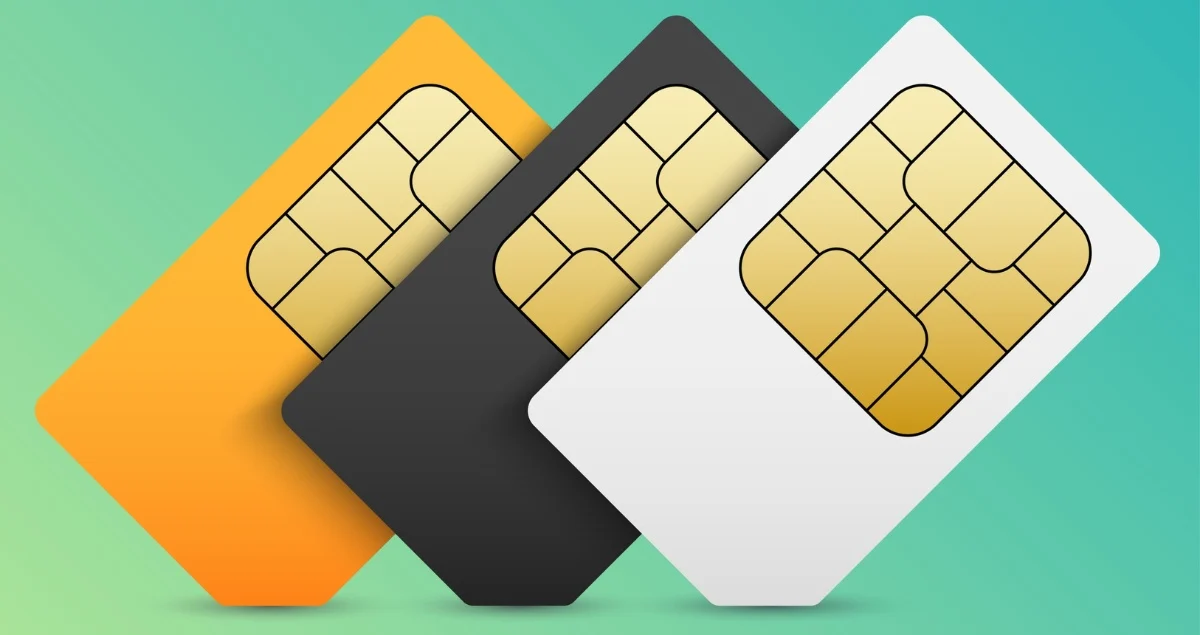In today’s connected world, businesses and individuals increasingly rely on SIM trackers to monitor and manage assets, vehicles, and IoT devices. Whether you are a logistics company, an industrial enterprise, or a smart device developer, choosing the right SIM tracker is critical for ensuring reliable connectivity, accurate tracking, and efficient device management.
At ZhongYi IoT, we specialize in providing IoT SIM and M2M SIM solutions tailored for a wide range of SIM tracker applications. This guide will help you understand the key factors to consider when selecting the right SIM tracker for your devices.
1. What is a SIM Tracker?
A SIM tracker is a tracking device equipped with a SIM card that uses mobile networks to transmit location and status data to a cloud platform, smartphone, or monitoring system. Unlike traditional GPS trackers that may rely solely on short-range communication, SIM trackers leverage mobile networks for global or regional connectivity, making them suitable for a wide range of applications.
Key features of SIM trackers:
- Real-time or periodic location updates
- Remote monitoring and device management
- Compatibility with 2G/3G/4G/5G networks, NB-IoT, or LTE-M
- Integration with IoT platforms for analytics and reporting
SIM trackers can be divided into M2M SIM trackers and IoT SIM trackers, depending on their intended use and connectivity needs.
2. Why SIM Tracker Selection Matters
Choosing the wrong SIM tracker can lead to poor connectivity, inaccurate location data, high operational costs, or even device failure. Here are a few reasons why the right SIM tracker is crucial:
- Reliable Connectivity: Ensures continuous data transmission even in remote or moving environments.
- Data Accuracy: Provides precise real-time location updates for efficient asset management.
- Cost Efficiency: Optimizes data usage and SIM plan costs based on your device requirements.
- Device Compatibility: Ensures seamless integration with your IoT or M2M devices.
At ZhongYi IoT, we focus on delivering SIM cards and tracking solutions that guarantee reliability, performance, and flexibility for diverse IoT and M2M applications.
3. Key Factors to Consider When Choosing a SIM Tracker
3.1 Device Type and Use Case
Your choice of SIM tracker depends on the type of device you want to monitor.
- Vehicles and Fleet Management: Require real-time tracking with high reliability and multi-network coverage.
- Industrial IoT Devices: Sensors or machinery in factories may need long-term stable connections with low data usage.
- Personal or Small Assets: GPS-enabled SIM trackers for pets, luggage, or portable equipment may prioritize compact size and battery life.
3.2 Connectivity Requirements
SIM trackers rely on network connectivity to transmit data. Consider the following:
- Network Coverage: Ensure the SIM supports the regions where your devices operate.
- Network Type: Depending on your data needs, choose between 2G, 3G, 4G, 5G, NB-IoT, or LTE-M.
- Global vs Regional: IoT SIM trackers often support multi-operator networks, suitable for international deployments.
3.3 Data Usage and Plans
Understanding the expected data usage is critical:
- Low Data Devices: Such as meters or simple sensors, often use M2M SIM with minimal monthly data.
- High Data Devices: Such as smart cameras or fleet telematics, may require IoT SIM with higher bandwidth and flexible plans.
3.4 Device Lifecycle and Reliability
- Long-Term Deployment: Industrial devices or remote sensors benefit from durable M2M SIM trackers designed for 5–10 years.
- Short-Term or Flexible Deployment: IoT SIM trackers offer the flexibility to scale, switch networks, or adjust plans.
3.5 Management and Integration
- Cloud Platforms: Advanced IoT SIM trackers integrate with cloud platforms for remote management, alerts, and analytics.
- APIs and SDKs: Ensure the tracker supports integration with your existing applications.
- Monitoring Features: Real-time alerts, geofencing, and reporting enhance device management efficiency.
4. Applications of SIM Trackers
SIM trackers are versatile and widely used across industries:
- Fleet and Logistics Management:
Real-time tracking of trucks, vans, or shipping containers ensures route optimization, safety, and delivery efficiency. - Industrial IoT Devices:
Machines and sensors in factories transmit performance data and location information to central monitoring systems, enabling predictive maintenance. - Smart Home and Personal Devices:
Smart locks, cameras, or wearable devices utilize IoT SIM trackers for reliable connectivity and remote monitoring. - Asset Protection:
Valuable equipment, tools, or cargo can be tracked anywhere, reducing theft and loss. - International Operations:
IoT SIM trackers with multi-network coverage allow devices to operate seamlessly across countries, making them ideal for global supply chains.
5. SIM Tracker Selection Guide
Here is a step-by-step approach to choosing the right SIM tracker:
- Identify Your Device Needs: Determine the type of device, environment, and mobility.
- Assess Connectivity: Check network compatibility, coverage area, and required network types.
- Estimate Data Usage: Choose an SIM plan that fits low, medium, or high data needs.
- Evaluate Tracker Features: Consider real-time tracking, geofencing, alerts, and API support.
- Consider Reliability and Lifecycle: For long-term deployments, M2M SIM trackers often provide better stability.
- Choose a Trusted Provider: Work with a reliable company like ZhongYi IoT, which provides professional SIM cards and support for IoT and M2M tracking solutions.
6. Why Choose ZhongYi IoT for Your SIM Tracker Needs?
At ZhongYi IoT, we specialize in providing IoT SIM and M2M SIM solutions optimized for SIM trackers. Our services include:
- Global and regional network coverage: Ensuring your devices stay connected anywhere.
- Flexible data plans: Catering to different data consumption needs.
- Cloud management platforms: Easy integration, monitoring, and analytics.
- Expert support: Technical assistance for device integration and deployment.
Whether you are deploying a small fleet of vehicles or a global network of IoT sensors, ZhongYi IoT ensures your SIM tracker devices operate efficiently and reliably.
7. Conclusion
Choosing the right SIM tracker is essential for device performance, connectivity reliability, and operational efficiency. By considering device type, connectivity, data usage, lifecycle, and management capabilities, you can select a SIM tracker that perfectly fits your needs.
- M2M SIM trackers excel in long-term, low-data, stable deployments.
- IoT SIM trackers offer flexibility, global coverage, and advanced management for complex IoT projects.
If you’re looking to purchase SIM trackers for your devices, ZhongYi IoT provides professional IoT and M2M SIM solutions tailored to your needs.
Contact us today to discuss your SIM tracker requirements and ensure your devices stay seamlessly connected!



